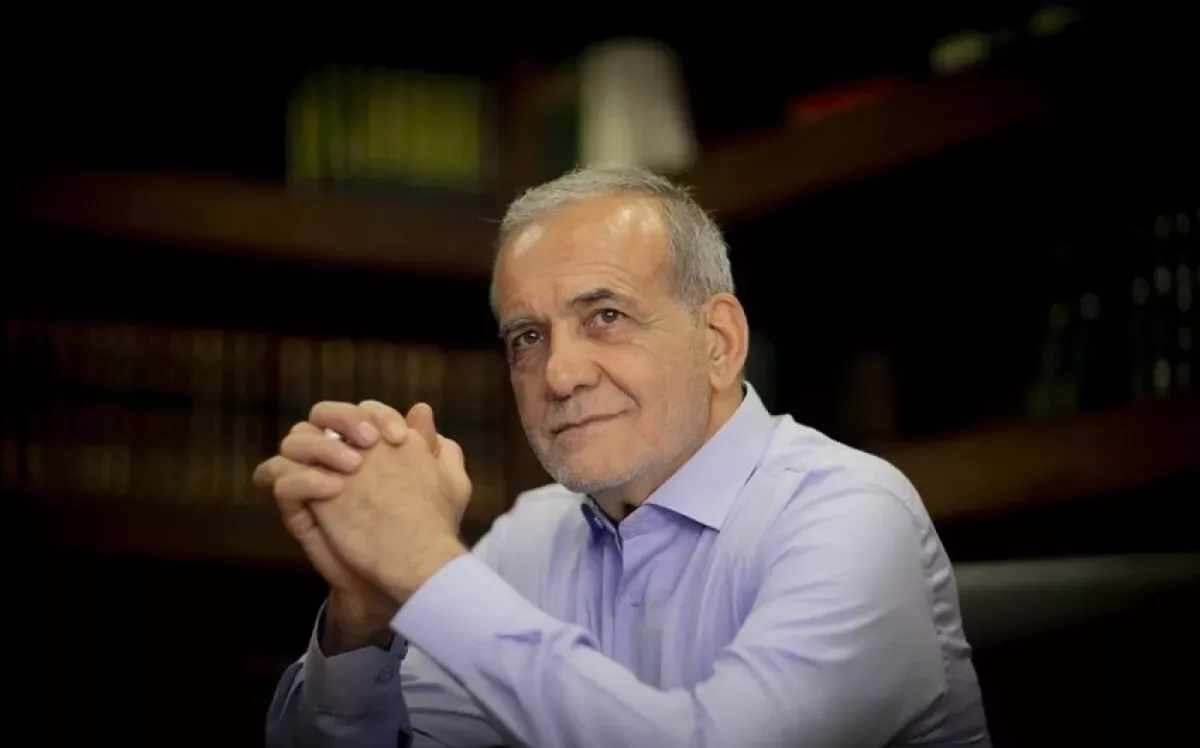Iranian diplomacy amid shifts in South Caucasus What will Pezeshkian bring to the table in Yerevan?
President of Iran will visit Armenia from August 18 to 21. According to Armenian media, during the three-day visit, Masoud Pezeshkian will participate in a business forum in Yerevan, which will include representatives from Iranian industries, road construction, agriculture, engineering services, and more. However, despite the economic agenda, the visit raises a number of questions, especially in light of the August 8 meeting in Washington between the leaders of Azerbaijan, Armenia, and the United States. It is worth recalling that the meeting resulted in the signing of a Joint Declaration, which, among other things, mentions the opening of the Zangezur Corridor and the transfer of its management to the United States on a 99-year lease basis.
The Zangezur Corridor project has always provoked negative reactions in Iran, particularly among conservatives close to Ali Khamenei, including the IRGC—those who traditionally hold anti-Azerbaijani and anti-American positions. After the Washington meeting, their opposition reached its peak. Advisor to the Supreme Leader of the Islamic Republic of Iran, Ali Velayati, even promised to “block” the U.S.-backed corridor through Zangezur “with or without Russia.” He described the project as a “threat to Armenia’s territorial integrity” and regional security, comparing the U.S. president’s “lease” idea to the Panama Canal, and even warned that the corridor would become a graveyard for “Trump’s mercenaries.”
Echoing Velayati, Deputy Commander for Political Affairs of the Iranian Revolutionary Guard Corps (IRGC), General Javani, said Tehran will not allow the creation of an “American corridor” near its borders and will use “the force of arms” to thwart U.S. plans.
Amid these statements by conservative theocrats, the remarks of the Iranian president sound significantly more measured and reasonable.
“Everything is not as exaggerated in the news. The demands of the Islamic Republic regarding this route have been taken into account,” Pezeshkian stated, noting that important issues for Tehran—such as territorial integrity and free access to Europe or the north—were considered in Washington.

In other words, he diplomatically smoothed over the sharp edges of the disagreements surrounding the Zangezur Corridor, demonstrating a balanced approach and political prudence on this matter. This is point one.
Second. Although Tehran has traditionally positioned itself on the Zangezur Corridor issue as a defender of Armenian interests—claiming that the corridor would “undermine Armenia’s sovereignty and territorial integrity,” a narrative actively promoted in Iranian media—in reality, Iran has pursued its own interests. Tehran was concerned that the Zangezur Corridor would significantly reduce its transit potential and weaken its access to the Russian market. Now, with the situation around the transport corridor having changed dramatically, the Iranian side is likely to address this sensitive issue in a very concrete way during discussions in Yerevan, despite Pezeshkian’s more diplomatic statements noted above.
Third, in light of the current tense confrontation between Tehran and Washington over renewed disagreements regarding Iran’s nuclear program, the presence of Americans near Iran’s borders is far from reassuring for its leadership. Pezeshkian himself acknowledged this, saying: “The only concern is that this road will be built by American companies.”
It is difficult to predict the outcomes of Pezeshkian’s visit at this point. However, it can be confidently stated that the agreements reached in Washington have clearly reshaped the geopolitical landscape in the South Caucasus: from now on, the primary focus is on the interests of Azerbaijan and Armenia—both economic and political.








